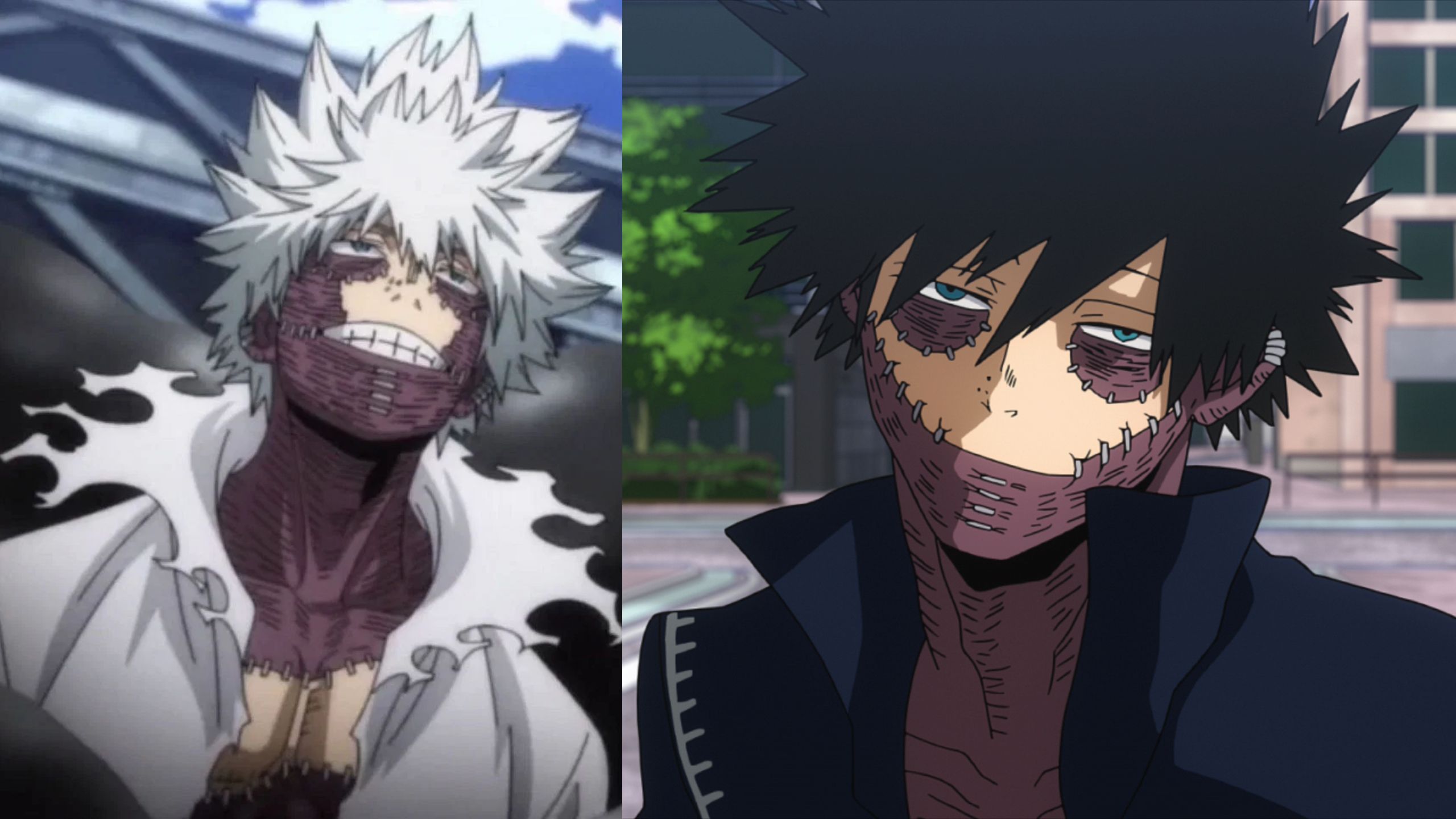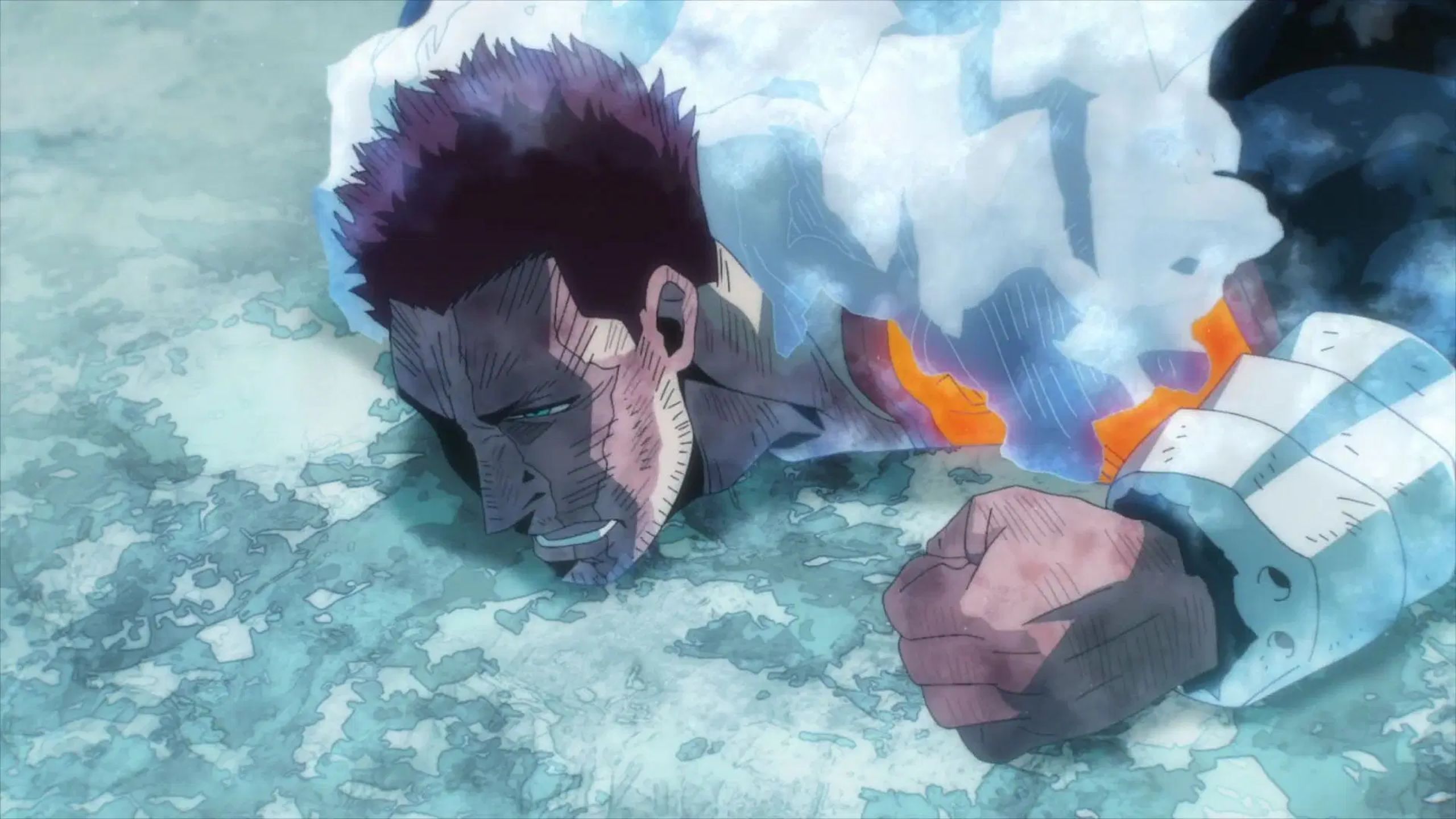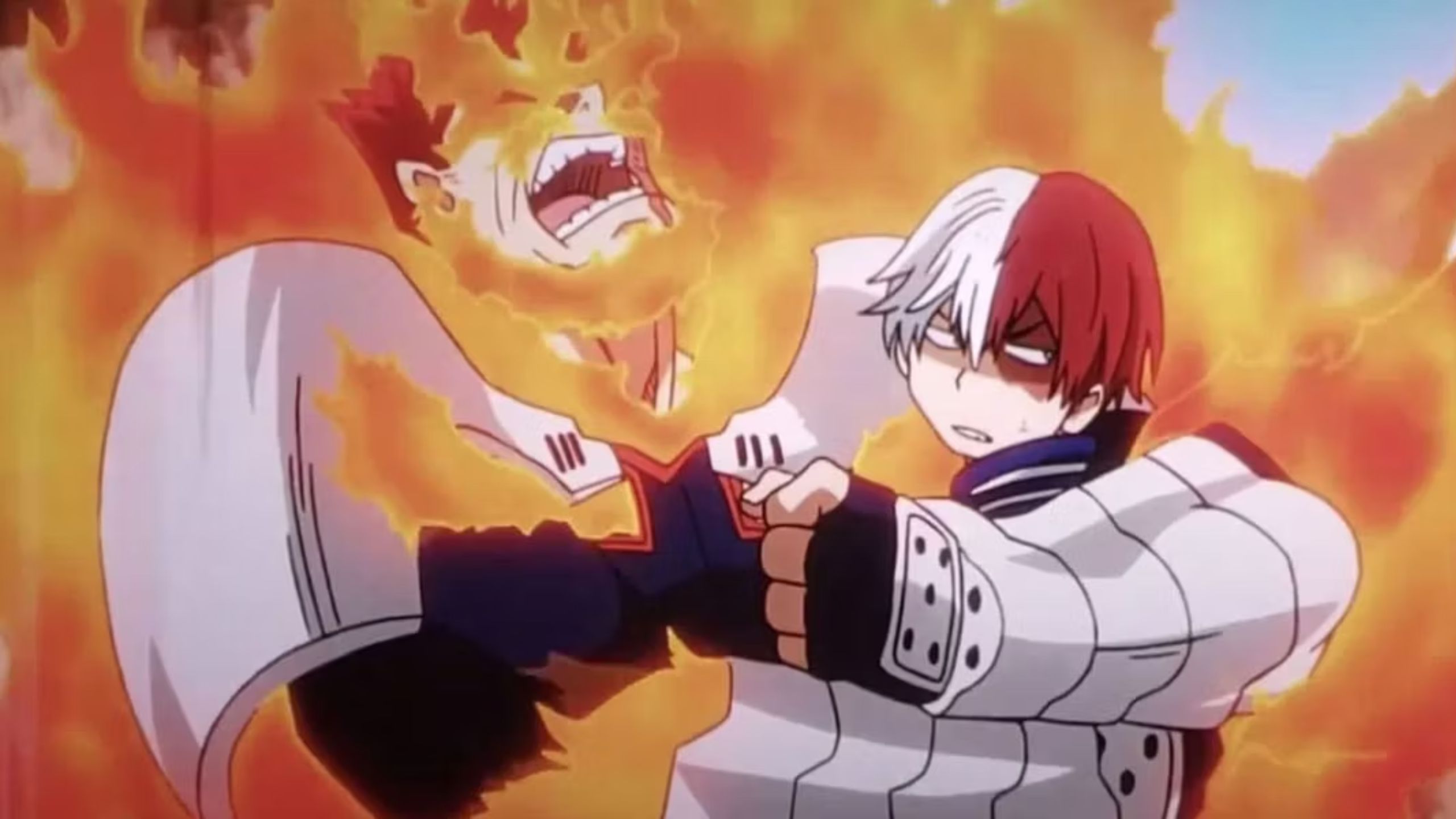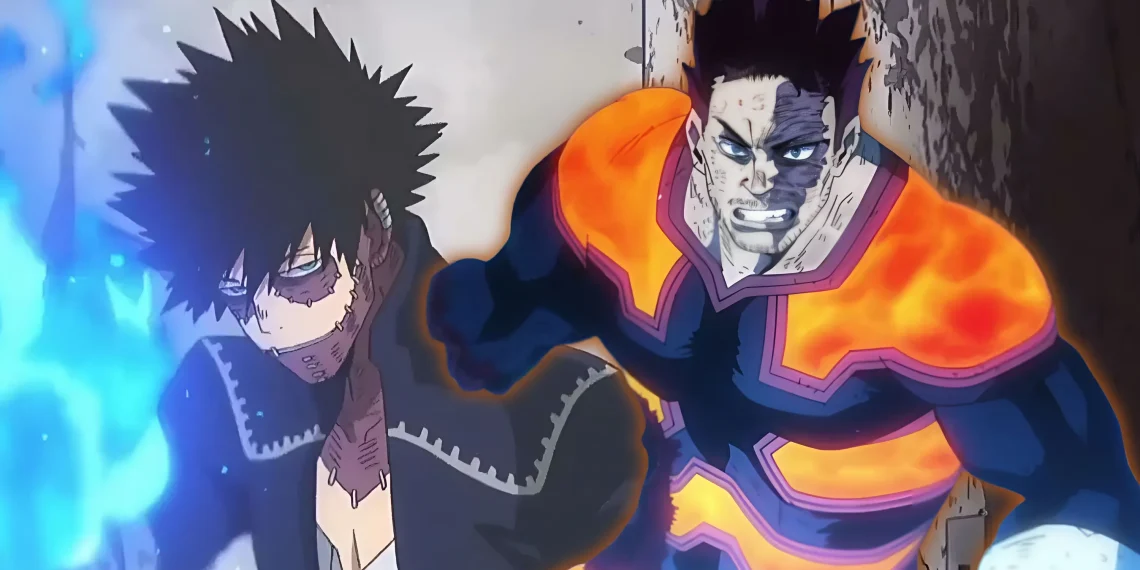Endeavor, or Enji Todoroki, has emerged as one of My Hero Academia’s most complex and controversial characters.
Over the course of the series, Endeavor’s journey has attracted and frustrated fans in equal measure, prompting heated debates and passionate discussions across the fandom.
Now that the series nears its ending, the arguments over his character’s worth and impact are as intense as ever.
Horikoshi’s portrayal of Endeavor is multilayered, and his complex arc has revealed deep divisions within the fanbase, where fans find themselves either championing his growth or condemning his past actions as unforgivable.
This internal struggle within the fandom is testament to the effectiveness of Horikoshi’s character work, as he masterfully creates a character that defies easy classification.
Some fans admire the boldness Horikoshi shows by giving Endeavor such a morally gray journey.
In a genre where heroes are typically painted as morally pure, Endeavor represents a figure with significant flaws, someone who has made grave mistakes but still strives to become better.

For those who appreciate his arc, Endeavor’s character adds a layer of realism to My Hero Academia, making the series more than just a story about superheroes but a complex narrative on humanity’s potential for both harm and growth.
On the other side, however, a large portion of the fanbase finds it incredibly difficult to accept Endeavor’s path to redemption.
To them, the trauma he inflicted on his family is far too severe to be easily forgotten or forgiven.
Despite his attempts to change, these fans argue that certain actions are unforgivable, particularly the abuse he directed at his own family.
They believe that no amount of growth or redemption can erase the emotional scars he left behind.
For these fans, the very idea of a redemption arc for Endeavor feels like a dismissal of the pain he caused, an attempt to wash away the consequences of his actions without adequately addressing them.
The Dark Legacy of Endeavor in My Hero Academia
Endeavor is introduced in My Hero Academia not as a pure-hearted hero but as a figure deeply entrenched in personal ambition and moral flaws.
As the number two hero, he is consumed by an obsessive drive to surpass All Might, the symbol of peace, and become the top hero.
This fixation leads him down a dark path, where his pursuit of power and glory comes at a devastating cost to his family.
Endeavor’s ambition is not tempered by compassion or humility; instead, it manifests as ruthlessness and control, particularly over his wife and children.
His treatment of his family is severe, pushing them to their emotional and physical limits to satisfy his own desire to achieve greatness.
The effects of Endeavor’s ambition on his family are profound, with his son Shoto Todoroki bearing the brunt of his father’s harsh expectations.
#MyHeroAcademia Whether you love him or hate him, Endeavor is undoubtedly one of the best characters in the series
The flow of his growth feels so natural and his characterzation has come to have a vast multitude of layers etched in pic.twitter.com/LUGAp4ewcJ
— ZheroG (Re-Edition 🔁 ) (@glennster2363) September 28, 2024
Shoto is born with a unique quirk that combines his father’s fire abilities and his mother’s ice powers, making him the “perfect” successor in Endeavor’s eyes.
However, Endeavor’s abusive treatment of Shoto throughout his childhood traumatizes the boy and leaves deep psychological scars.
Shoto grows up resenting his father, feeling like a tool rather than a person, molded and used for Endeavor’s personal ambitions.
The series shows how this abusive behavior affects Shoto’s self-identity and his relationships with others, casting a long shadow over the Todoroki family.
Horikoshi does not shy away from depicting the darker side of Endeavor’s character, and this is a significant part of why he remains controversial.
His treatment of his wife, Rei, is also heartbreaking, as she suffers under his oppressive expectations, leading her to a mental breakdown.
Endeavor’s actions leave Rei hospitalized, separating her from her children and leaving a deep wound in the family.
For many fans, these scenes of familial abuse are difficult to watch and leave an indelible impression of Endeavor as a figure of destruction rather than a hero.
Horikoshi’s portrayal of Endeavor raises difficult questions about whether redemption is possible for someone who has committed such serious wrongs.
Is there a point where someone’s actions are so harmful that redemption is no longer an option?
For some fans, the answer is a resounding yes, and they feel that My Hero Academia may be failing to fully address the gravity of Endeavor’s actions.
For others, however, Endeavor’s attempts to atone for his past represent a powerful journey of self-reflection and growth that enriches the story.
Endeavor’s Redemption Arc: A Bold and Controversial Choice
As My Hero Academia progresses, Horikoshi takes a daring step by jumping into Endeavor’s redemption arc.

Unlike traditional heroes, who may face obstacles but maintain a core of goodness, Endeavor’s character is rife with guilt, regret, and moral ambiguity.
His journey toward redemption is fraught with difficulties, as he grapples with his own demons and attempts to confront the consequences of his actions.
This makes Endeavor’s story arc one of the most intricate in the series, challenging both the character and the audience to confront the uncomfortable reality of his past.
Endeavor’s attempts at redemption are portrayed with a degree of complexity that reflects Horikoshi’s skill as a storyteller.
Endeavor does not undergo a rapid or miraculous transformation; instead, his progress is gradual and filled with setbacks.
He acknowledges the harm he has caused and expresses genuine remorse for his actions, taking responsibility for the pain he inflicted on his family.
His efforts to change are not born out of a desire to gain admiration or forgiveness from others but stem from an internal drive to be a better person, both for himself and for his loved ones.
This introspective struggle adds a layer of realism to his character and makes his path to redemption feel grounded and genuine, even if it does not excuse his past behavior.
Despite these nuances, Endeavor’s redemption arc remains a point of contention for many fans. To them, the scars he left on his family cannot be healed through mere apologies or acts of heroism.
They argue that while Endeavor may have changed, the trauma he caused persists, leaving a lasting impact on his family members, especially Shoto.
In their view, My Hero Academia may not be giving enough weight to this trauma, focusing instead on Endeavor’s growth and leaving the victims of his actions without adequate closure.
On social media, particularly on platforms like X, fans express a wide range of opinions about Endeavor’s redemption.
Some fans praise Horikoshi’s handling of the character, arguing that Endeavor’s complexity makes him one of the most well-developed characters in the series.
They appreciate the depth of his struggle and the way his arc subverts traditional notions of heroism and redemption.
For them, Endeavor’s story is a reminder that even those who have made serious mistakes can strive to change, and that this journey is often painful and imperfect.
However, a significant portion of the fandom disagrees. For them, Endeavor’s actions are unforgivable, and no amount of self-improvement can erase the suffering he inflicted on his family.
This sentiment is echoed by one user on X, who commented, “Abusers don’t deserve redemption arcs; in real life, this never happens.”
This perspective reflects a belief that, in the real world, people like Endeavor rarely change, and giving him a redemption arc may feel unrealistic or even harmful.
"I wish MHA had more complexed characters"
THERE ARE, BUT Y'ALL DON'T UNDERSTAND THEM https://t.co/osWNPBRjcl pic.twitter.com/CJNKWChqM8— Lushi (@LushiSun10) November 13, 2024
Another fan voiced a contrasting opinion, stating,
“Omg, people are so blind. Endeavor has by far the best development in the show. But people have too much trauma to separate fiction from their own life and admit it.”
This comment suggests that some fans might be projecting their own experiences onto the character, making it harder for them to appreciate the nuance of his journey.
Unforgivable Past: Fan Reactions to Endeavor’s Story
Endeavor’s past actions cast a long shadow over his redemption arc, and for many fans, his attempts at change cannot erase the harm he has done.
The abusive behavior he exhibited towards his family is not something that can be easily forgiven, and his attempts to make amends, while significant, do not remove the pain he caused.
For these fans, the character’s past is an indelible part of who he is, and any efforts to redeem him feel insufficient in the face of the trauma he inflicted.
One fan on X voiced this perspective by stating,
“You can admit Endeavor is a complex character WHILE still hating him. Because he is well-written, and yes, he’s trying to atone, but I can still hate him. We hate him because of his complexity; if you don’t realize that, you’re just dumb.”
This comment summarizes the duality that many fans feel toward Endeavor.
They can recognize the depth of his character and appreciate the skill with which Horikoshi has developed him, but this does not mean they feel compelled to forgive him.
This viewpoint reflects a broader theme in My Hero Academia: the idea that people are not defined solely by their past mistakes, but neither can they escape them entirely.
Endeavor’s past remains a part of him, and even as he seeks to change, the effects of his actions continue to linger, both for him and for his family.
Fans who align with this perspective argue that Endeavor’s growth, while significant, does not erase the pain he caused, and they remain conflicted about whether or not he deserves redemption.
Horikoshi’s Exploration of Moral Complexity in My Hero Academia
Through Endeavor, Horikoshi tackles difficult questions about morality, accountability, and forgiveness.

Endeavor’s character serves as a vehicle for exploring these themes, challenging fans to consider the nature of redemption and whether it is truly achievable for someone who has caused significant harm.
This approach sets My Hero Academia apart from other series in the genre, which often portray heroes as paragons of virtue without addressing the more complicated aspects of human behavior.
Endeavor’s journey raises thought-provoking questions about what it means to be a hero and whether redemption is possible for someone who has committed serious wrongs.
Is it enough for Endeavor to change his behavior and seek to become a better person, or do his past actions forever define him?
Horikoshi does not provide easy answers to these questions, leaving it up to the audience to decide where they stand on Endeavor’s character.
This ambiguity is a hallmark of effective storytelling, as it encourages viewers to engage with the material on a deeper level and grapple with the moral complexities it presents.
However, this approach has also drawn criticism from fans who feel that Horikoshi may be overly sympathetic towards Endeavor.
They argue that the focus on his redemption arc detracts from the experiences of his victims, particularly Shoto, and may send a message that downplays the harm caused by abusive behavior.
These fans believe that My Hero Academia should place greater emphasis on the impact of Endeavor’s actions on his family and provide more resolution for those who suffered as a result of his behavior.
Horikoshi’s portrayal of Endeavor in My Hero Academia has sparked a passionate and ongoing debate among fans.
While some appreciate the complexity of his character and the depth of his redemption arc, others find his past actions unforgivable and feel that his journey toward atonement does not adequately address the trauma he inflicted.
This divide reflects the power of Horikoshi’s storytelling, as he creates a character that defies easy classification and challenges viewers to confront difficult questions about morality and forgiveness.
For some fans, Endeavor’s journey is a powerful story of growth and redemption, while for others, it is a reminder of the lasting consequences of abuse and the difficulty of forgiving those who have caused harm.

As My Hero Academia approaches its ending, these conflicting perspectives will likely continue to shape the way fans view Endeavor and the series as a whole.
Horikoshi’s depiction of Endeavor captures the duality of human nature our capacity for growth and our tendency to repeat old mistakes.
For fans, this duality mirrors their own conflicted feelings toward Endeavor. Some see his flaws as a reflection of real-world complexity, while others view his redemption arc as insufficient for the pain he has caused.
As My Hero Academia approaches its ending, fans remain divided on how to interpret Endeavor’s journey.
The character’s arc serves as a reminder that even in a world of heroes, morality is not always black and white.
And while some fans may never forgive Endeavor, others may continue to admire his struggle for redemption, reflecting the lasting, complex impact of Horikoshi’s storytelling.





